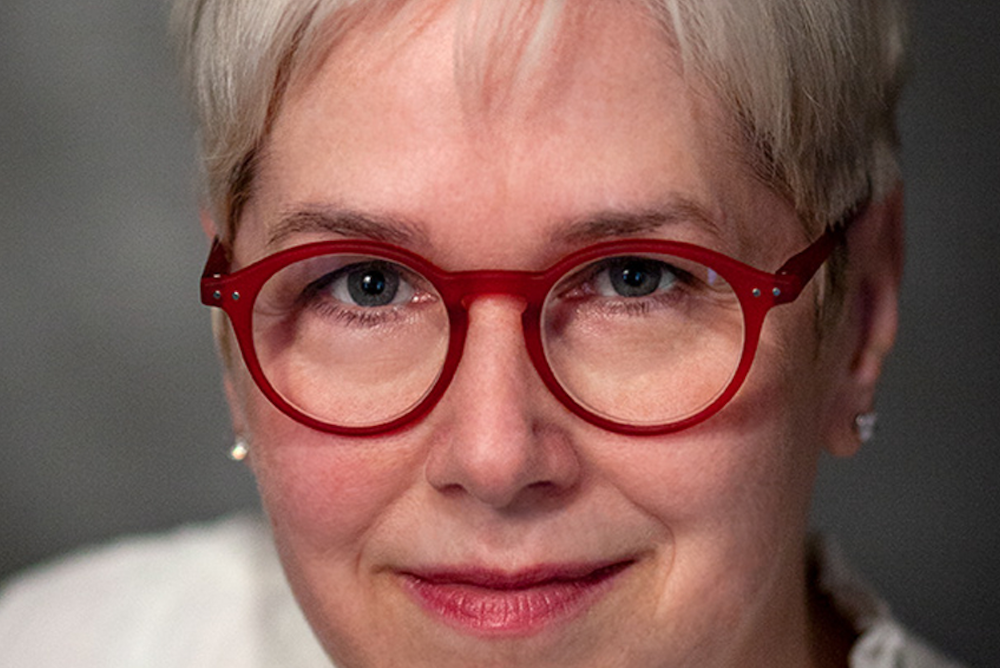
Lindy Elkins-Tanton is managing director and co-chair of the Arizona State University Interplanetary Initiative and principal investigator of NASA’s Psyche mission, which is projected to launch in 2022 to explore a metal asteroid orbiting the sun between Mars and Jupiter. Before participating in a Zócalo/ASU Interplanetary Initiative event, “Can Space Exploration Save Humanity?,” she visited the virtual green room to talk about breaking barriers in space, why she appreciates the Guardians of the Galaxy series, and the questions she gets asked the most at dinner parties.
What’s your favorite movie set in outer space?
The weird thing about me is I’m not an outer space groupie. I didn’t grow up dreaming of traveling in space. The thing I care about the most is really great teams and discovering new things. I do totally love the Guardians of the Galaxy movies, and part of the reason I love them is that the women are as good fighters as the men.
Speaking of which: You’re part of an all-women panel on space exploration. What do you think women bring to exploration?
I’m of the opinion that there are few fundamental differences between men and women behaviorally, neurologically; most of the differences we experience are socialized. What I really want is something where everyone who wants to participate can participate, and where every voice is heard, and where you rise on your merits. Exploration has been one of the most difficult areas for women to break into, partly because it’s been based so fundamentally on the idea of physical toughness and being in remote areas and being isolated as groups. And those are all areas where there’s a huge bias against women being a successful part of the team. I think space exploration is one where we can break those barriers.
How do you decompress?
I love to go for long walks or hikes. I read The New Yorker. My husband and I play silly computer games together.
As a child, what did you want to be when you grew up?
A veterinarian.
What’s the last thing that made you laugh out loud?
Something in 2019, right?
In a moment of interesting national debate, what space-related topics do you want to see in the national dialogue?
Space gives us a way uniquely to imagine us as our better selves—to imagine humanity as it could be. There’s been almost no exploration on Earth that hasn’t involved the annihilation of indigenous peoples or a completely profit motive. We’ve had some pure exploration of the poles that was actually quite nationalistic and a hero model; it was all about making one person great.
The thing about space exploration is, it gives us the opportunity to be curious about something that’s so far beyond us. It gets us out of our skins, to imagine ourselves as cooperative and imagine ourselves with a greater meaning to what we’re doing. And to avoid the personal emotional reaction that’s causing so many problems around the world right now and look at something that’s greater. That’s what space exploration really does for us.
You wear a lot of hats—at ASU, NASA, and an education start-up. Do you have any secrets to organizing your time that you’d like to share?
Developing a calmness about changing from one topic to the next. I need to pivot from one major issue to another major issue with no transition time, so cultivating a willingness to drop one thing and turn to another has been really helpful for my emotional stability. And only choosing topics or projects that I really, really care about.
If you could sit down for a beer with any person, past or present, who would you choose?
RBG for sure.
What’s the question you get asked most often at cocktail and dinner parties—pre-COVID of course—when people find out you’re a planetary scientist and leading a NASA mission?
There’s not really a single question. It seems there’s two categories of reactions: One is, “That’s really great, that’s so interesting; I love thinking about the planets or aliens.” And the other one is really a blank look, as if I said, “I’m a particle physicist.”



